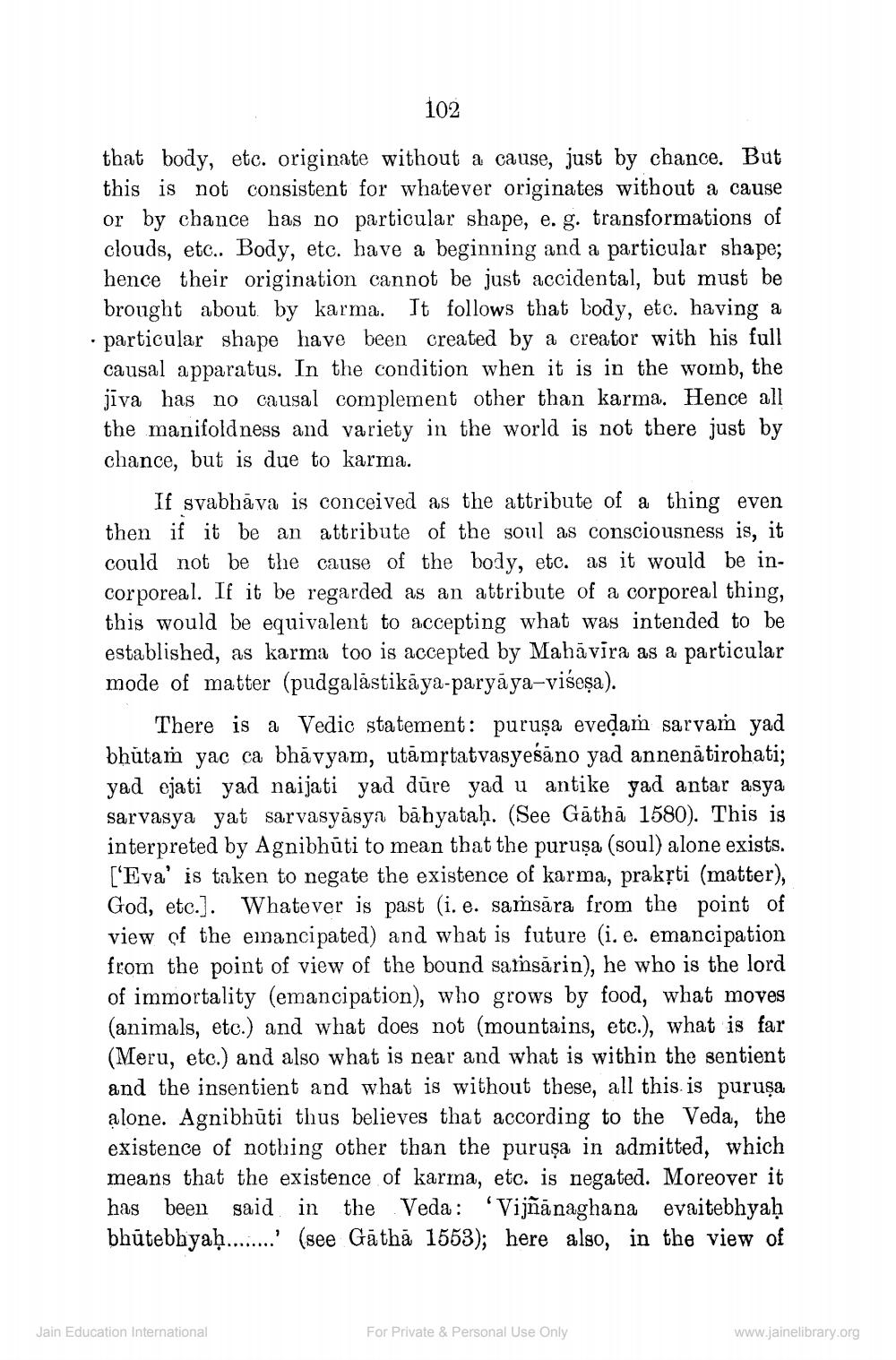________________
102
that body, etc. originate without a cause, just by chance. But this is not consistent for whatever originates without a cause or by chance has no particular shape, e. g. transformations of clouds, etc.. Body, etc. have a beginning and a particular shape; hence their origination cannot be just accidental, but must be brought about by karma. It follows that body, etc. having a particular shape have been created by a creator with his full causal apparatus. In the condition when it is in the womb, the jiva has no causal complement other than karma. Hence all the manifoldness and variety in the world is not there just by chance, but is due to karma.
If svabhava is conceived as the attribute of a thing even then if it be an attribute of the soul as consciousness is, it could not be the cause of the body, etc. as it would be incorporeal. If it be regarded as an attribute of a corporeal thing, this would be equivalent to accepting what was intended to be established, as karma too is accepted by Mahavira as a particular mode of matter (pudgalastikaya-paryaya-viseṣa).
There is a Vedic statement: puruşa eveḍam sarvam yad bhutam yac ca bhavyam, utamṛtatvasyeśāno yad annenätirohati; yad ejati yad naijati yad dūre yad u antike yad antar asya sarvasya yat sarvasyasya bahyatah. (See Gathā 1580). This is interpreted by Agnibhuti to mean that the purusa (soul) alone exists. ['Eva' is taken to negate the existence of karma, prakṛti (matter), God, etc.]. Whatever is past (i. e. samsara from the point of view of the emancipated) and what is future (i. e. emancipation from the point of view of the bound samsarin), he who is the lord of immortality (emancipation), who grows by food, what moves (animals, etc.) and what does not (mountains, etc.), what is far (Meru, etc.) and also what is near and what is within the sentient and the insentient and what is without these, all this is purusa alone. Agnibhuti thus believes that according to the Veda, the existence of nothing other than the puruşa in admitted, which means that the existence of karma, etc. is negated. Moreover it has been said in the Veda Vijnanaghana evaitebhyaḥ bhütebhyaḥ........' (see Gathā 1553); here also, in the view of
Jain Education International
For Private & Personal Use Only
www.jainelibrary.org




